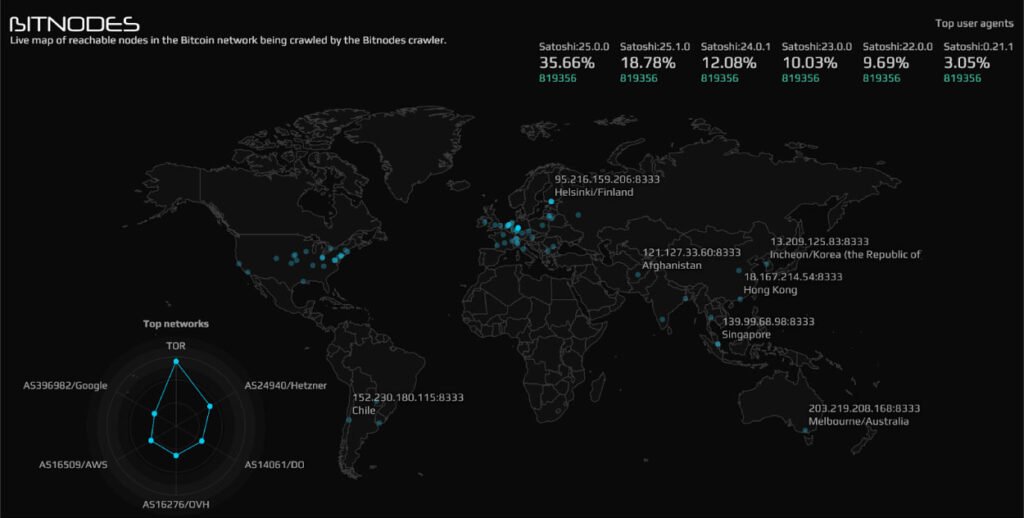Table of Contents
The Symphony of Bitcoin’s Security and Trust
As an advocate and educator in the realm of Bitcoin, I stress the critical role of confirmations in ensuring the network’s security and reliability. These are not just mere technicalities; they are the heartbeat of the Bitcoin ecosystem, ensuring its integrity and trust.
Bitcoin transaction confirmation ensures security, prevents double spending, and upholds the integrity of the network.
Bitcoin is an amalgamation of concepts, where the whole is greater than the sum of its parts. To address this question comprehensively, let’s delve into some of these crucial components: transactions, mining, and consensus rules.
Related reading: Why Your Bitcoin Transaction Is Stuck On Pending
The Essence of Bitcoin Transactions
Bitcoin transactions, forming the lifeblood of this decentralized network, are digital agreements for transferring ownership. They consist of inputs and outputs, creating a chain of ownership. Inputs are references to previous transactions, signifying the source of the funds. Outputs designate the new owners of the transferred bitcoin. This chain is integral to the trust and security of each transaction.

Mining: The Guardian of the Network
Mining, beyond generating new bitcoin, validates and embeds transactions into the blockchain. This Proof-of-Work (PoW) process is pivotal, requiring substantial computational resources and underpinning the network’s security.

Nodes and Consensus Rules: Maintaining Decentralization
Nodes, running the Bitcoin software, uphold the blockchain’s accuracy. They validate transactions against consensus rules, ensuring the network’s decentralized nature and preventing any single entity’s control.

Bitcoin Transaction Confirmation: Building Trust
Confirmations are acknowledgments that a transaction has been validated and added to the blockchain in a block. An unconfirmed transaction can be reversed, using Replace-by-Fee (RBF) or Child Pays for Parent (CPFP), although the latter is less efficient. With zero confirmations, a transaction is theoretically reversible, but adding more confirmations makes this more difficult.

Confirmations mitigate the risk of double spending, as reversing a transaction becomes exponentially more difficult with each added block. This is due to the need for an attacker to re-mine the blocks containing the transaction and all subsequent blocks, a feat that requires immense computational power, governed by the PoW mechanism.
It’s estimated that attempting such an attack would cost nearly $8 billion in hardware and over $2 million per hour in electricity.
Related reading: 3 Reasons Bitcoin Will Stick With Proof of Work
The Magic Number: Six
Six confirmations are generally accepted for substantial security, making a transaction practically irreversible. This standard reflects the enormous computational effort and associated cost needed to compromise such a transaction.
Andreas Antonopoulos, the famous Bitcoin educator, once illustrated the power behind each confirmation in a talk presented to MIT in 2015. This is what he would sell, given a number of confirmations:
- 0 confirmations – A cup of coffee.
- 1 confirmation – A TV.
- 2 confirmations – A fancy TV or a cheap car.
- 3 confirmations – A nice car.
- 4 confirmations – A fighter jet.
- 5 confirmations – An aircraft carrier.
- 6 confirmations – OPEC’s budget for the year.
This is the cost of attack or reversing the transaction scales exponentially with each confirmation.
Conclusion: The Mathematical Guarantee
Bitcoin offers a mathematical guarantee of transaction irreversibility unparalleled in the traditional financial system. The system of confirmations is a symphony of technological innovation and cryptographic security. It’s a dance of numbers where each confirmation step reinforces the trust and integrity of transactions.
Related reading: Bitcoin Is an Unprecedented Blend of Invention And Discovery — Michael Saylor
Confirmations serve as a testament to the elapsed computation, making rewriting the blockchain virtually impossible. They represent the communal agreement of the network and its resilience against fraud, ensuring that Bitcoin remains a secure and trusted form of digital currency.
Related reading: Why Proof-of-Stake On Ethereum Is A Disaster
It’s a currency that creates mathematical guarantees for the people who own the money – guarantees in math that you cannot get in law. This process exemplifies the beauty of Bitcoin’s decentralized nature, where trust is built on mathematical certainty and computational power.
FAQ
Why do Bitcoin transactions require confirmations?
Bitcoin transactions require confirmations to ensure the security, prevent double spending, and uphold the integrity of the network. Confirmations represent the acknowledgment that a transaction has been validated and added to the blockchain.
What are Bitcoin transactions in simple words?
Bitcoin transactions are digital agreements for transferring ownership, forming the lifeblood of the decentralized network. They consist of inputs and outputs, creating a chain of ownership that is integral to the trust and security of each transaction.
How does mining contribute to the security of the Bitcoin network?
Mining, through the Proof-of-Work process, not only generates new bitcoin but also validates and embeds transactions into the blockchain. This process requires substantial computational resources and plays a pivotal role in ensuring the network’s security.
What role do nodes play in maintaining decentralization?
Nodes, running the Bitcoin software, uphold the blockchain’s accuracy by validating transactions against consensus rules. This process ensures the decentralized nature of the network, preventing any single entity from gaining control.
Why is transaction confirmation important?
Confirmations are acknowledgments that a transaction has been validated and added to the blockchain. They mitigate the risk of double spending and make reversing a transaction exponentially more difficult with each added block, reinforcing trust in the network.
Why does six confirmation mean in bitcoin and why is it important?
Six confirmations are generally accepted for substantial security, making a transaction practically irreversible. This standard reflects the enormous computational effort and associated cost needed to compromise such a transaction.
Can you reverse a bitcoin transaction?
It’s estimated that attempting an attack to reverse a bitcoin transaction would cost nearly $8 billion in hardware and over $2 million per hour in electricity.
Are Bitcoin transactions irreversible?
Bitcoin offers a mathematical guarantee of transaction irreversibility unparalleled in the traditional financial system. Confirmations serve as a testament to the elapsed computation, making rewriting the blockchain virtually impossible.










